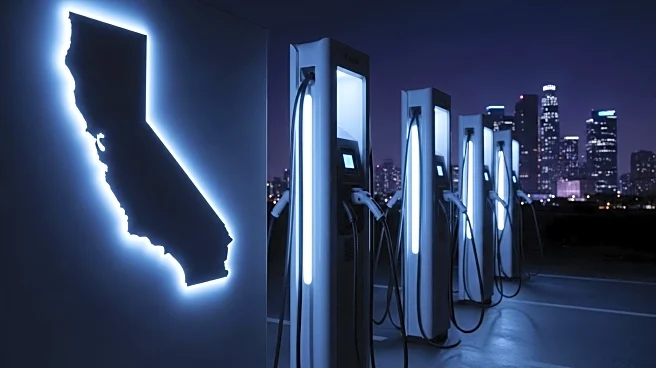What's Happening?
California Governor Gavin Newsom has publicly criticized General Motors (GM) for its stance on the expiring U.S. electric vehicle (EV) tax credit. Newsom accused GM of 'selling out' California by not supporting the renewal of the federal EV tax credit, which is set to expire. This criticism comes in the wake of Congress's decision earlier this year to block California's proposed ban on the sale of new gasoline-powered vehicles, scheduled to take effect in 2035. Newsom's comments reflect ongoing tensions between California's aggressive environmental policies and federal legislative actions that may hinder these efforts.
Why It's Important?
The expiration of the U.S. EV tax credit could have significant implications for the electric vehicle market, particularly in California, which has been a leader in promoting EV adoption. Governor Newsom's criticism of GM highlights the potential conflict between state and federal policies regarding environmental initiatives. If the tax credit is not renewed, it could slow the growth of EV sales, impacting manufacturers, consumers, and California's ambitious climate goals. GM's position may influence other automakers and stakeholders in the industry, potentially affecting the broader push towards sustainable transportation solutions.
What's Next?
The future of the EV tax credit remains uncertain, and its expiration could lead to increased lobbying efforts from both automakers and environmental groups. California may seek alternative incentives to maintain its leadership in EV adoption. Stakeholders, including GM, may face pressure to align with California's environmental policies or risk losing market share in the state. The ongoing debate may also influence future legislative actions at both state and federal levels, impacting the trajectory of the U.S. automotive industry.










